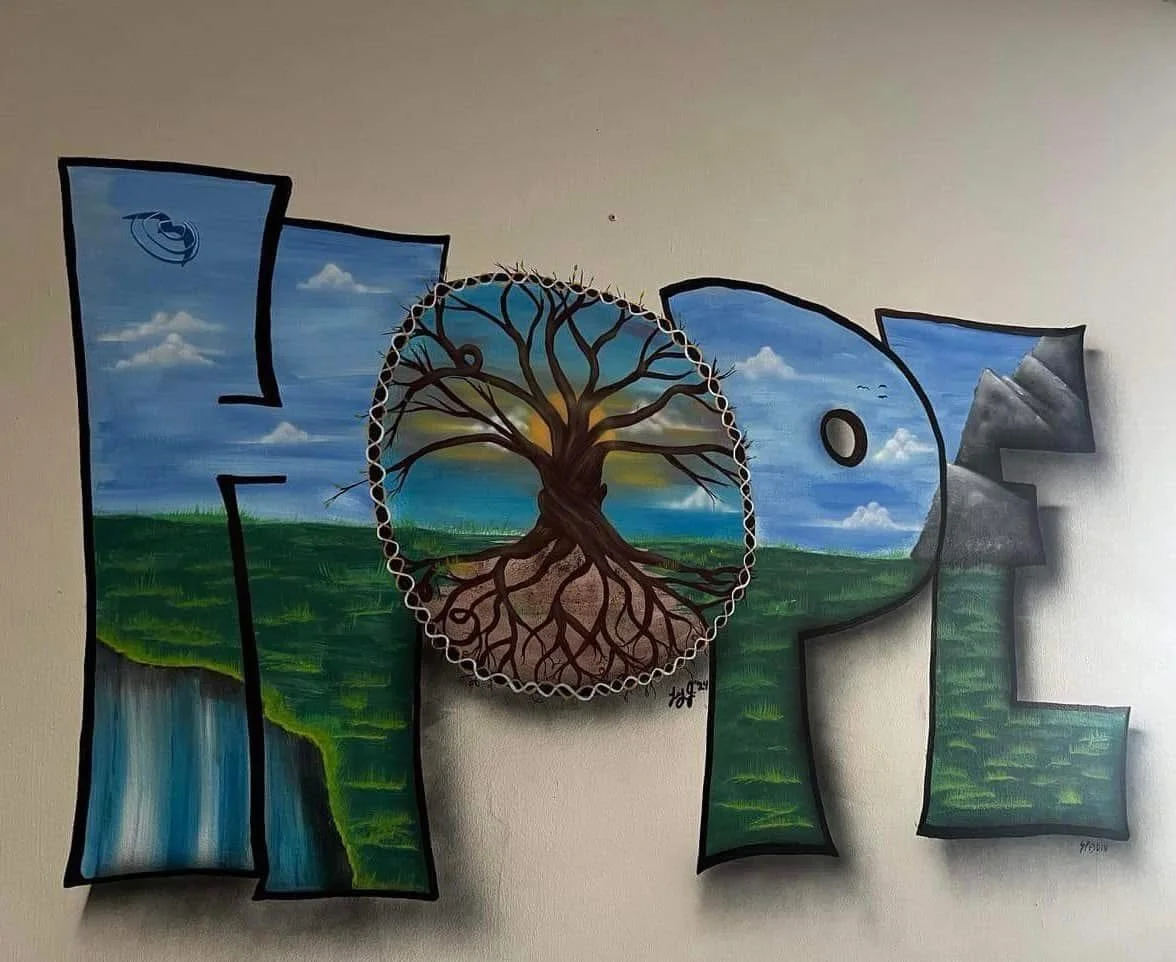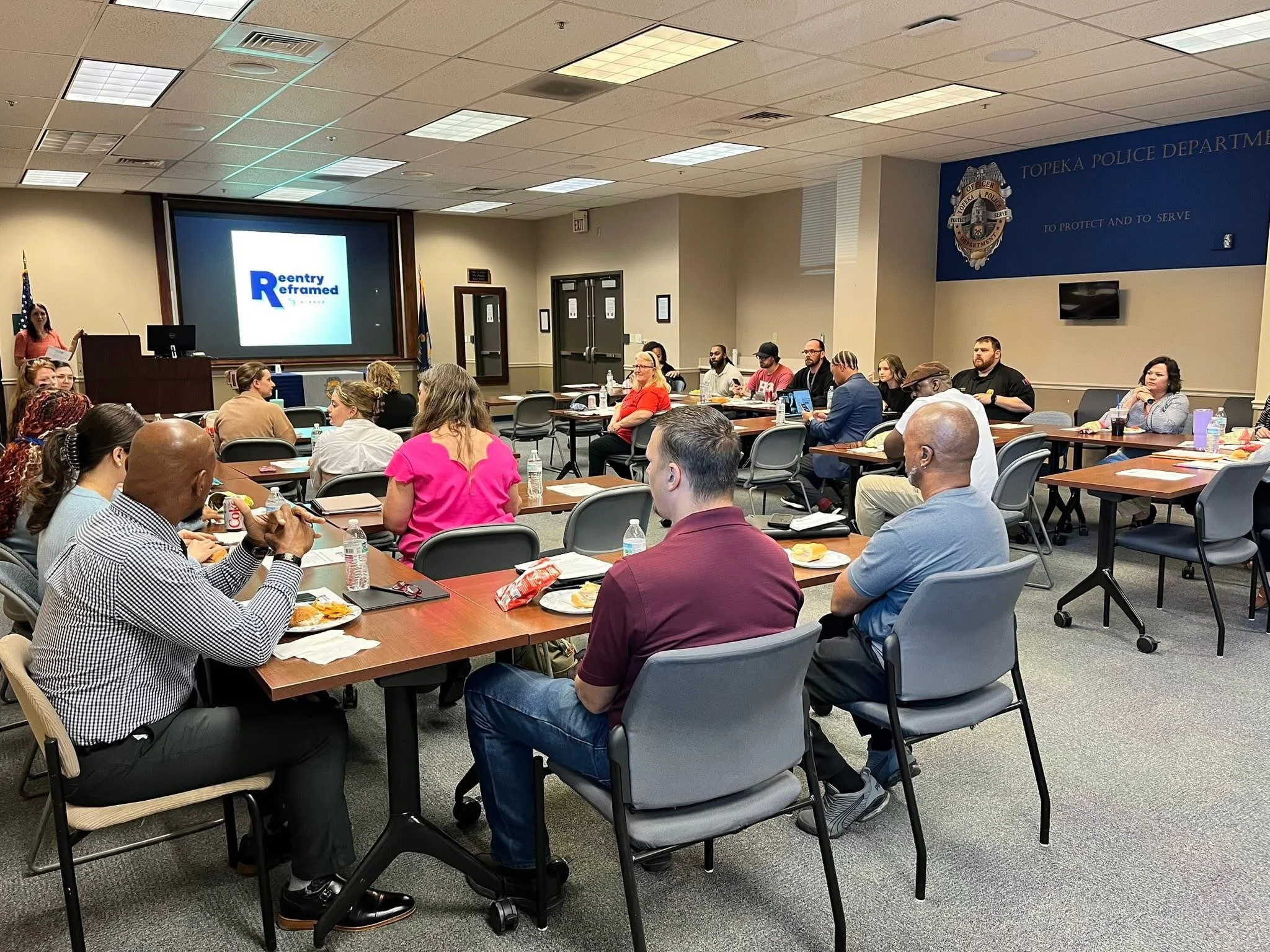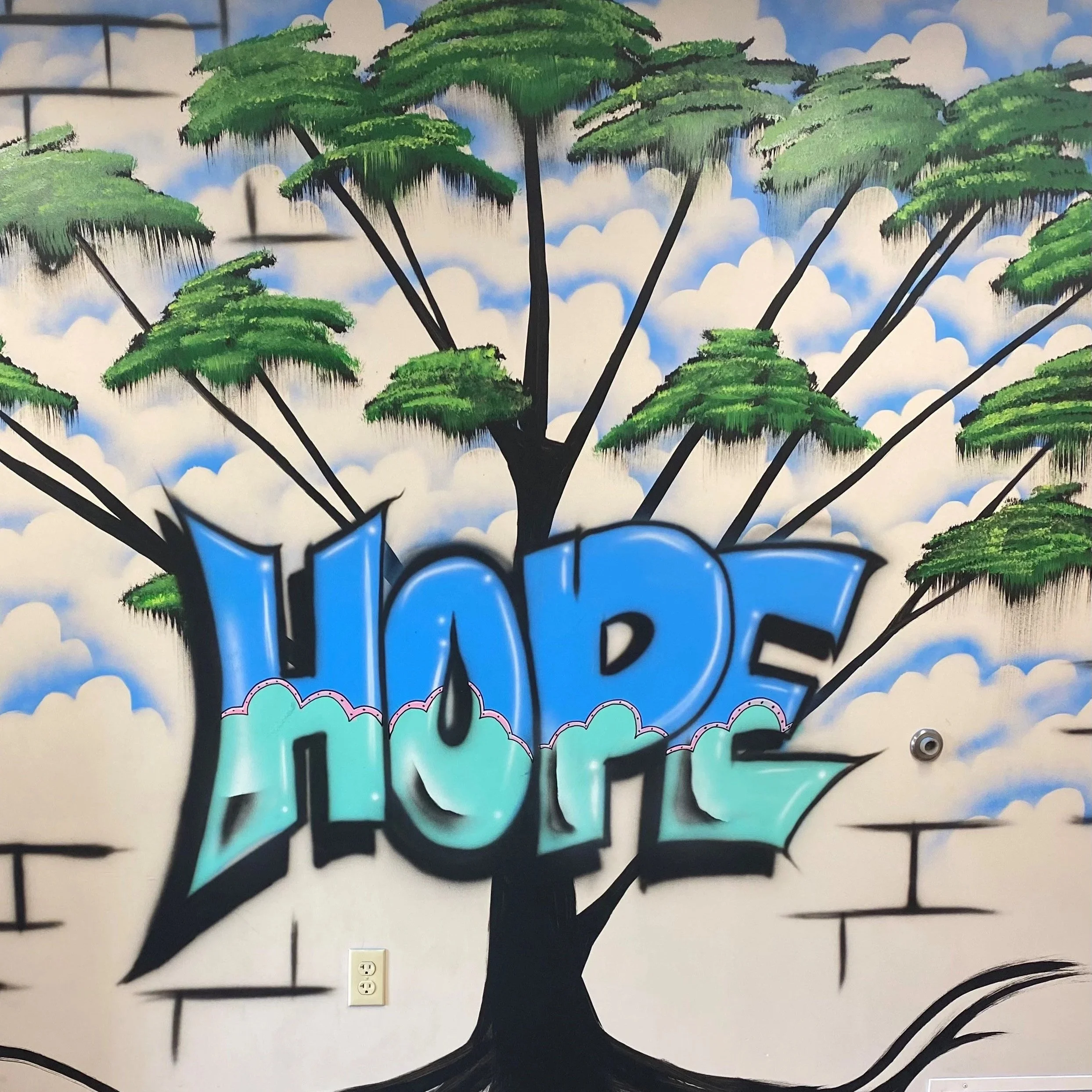Reentry Services
Services for incarcerated individuals reintegrating to the community
For more than 50 years, Mirror has helped individuals reintegrate into their communities. Successful reintegration isn’t possible unless an individual learns the skills necessary to function in an adaptive and effective manner, and is surrounded by supportive family and significant others, employers, religious communities, and social service agencies committed to their success. Mirror has developed a comprehensive network of support within communities throughout Kansas. We foster community reintegration through these partnerships in both urban and rural settings.
We take our job and mission seriously. Our professional staff live in the same neighborhoods as our residents, eat meals prepared by former residents and work to diminish or mitigate the cycle of incarceration. We base our programs on this philosophy: Change is difficult but not impossible; our residents CAN change; and collaboration and cognitive skills bring real results.

Our residents arrive with unique personal histories, strengths and needs.
Our partnerships with the Federal Bureau of Prisons, the Federal District Courts in Kansas, and the Kansas United States Probation and Pre-Trial Services staff enables our staff to develop comprehensive program plans for our residents. On-going training is offered to all staff focusing on the importance of reentry and underlying principles and practices of delivering evidence-based strategies.
With a strong system of accountability, we focus on skill development, mentoring and providing opportunities for practicing these new skill sets for our residents. We reinforce positive behaviors and hold residents accountable to the rules of the program and the requirements of the federal prison system, courts and probation officers. The safety and security of our communities are critical to our mission.

Programs
-
We offer creative arts for healing and self-expression based on a fundamental respect for one another. We are deeply committed to celebrating diversity and providing a safe space for individuals to become their best selves. Just as important as filling hours with work and family unification, developing pro-social leisure activities is also essential. Many of our residents focus on their physical health to relieve stress, church to build a strong support network, and find hobbies to fill free time. At the re-entry center, we try to be creative with various events and activities to engage and support our community.
-
Mirror staff are familiar with the barriers challenging those returning to the community from prison settings. Group and individual sessions are provided to all residents of the RRC to help them find meaningful employment. Mirror has developed collaborative relationships with employers in a variety of business settings. Our staff assist residents in developing resumes, practicing interviewing skills, developing job retention skills, and addressing self-defeating thoughts regarding employment. We also help residents obtain the necessary forms of identification (birth certificate and Social Security card) required to apply for work.
-
Mirror works closely with the Federal Bureau of Prisons to place residents on home confinement (U.S. Probation Office referrals are not eligible for home confinement). The Bureau determines the home confinement eligibility date, and the residence must be inspected by Mirror staff to determine if the home safely fits the release plan. The residence will typically be the release residence where probation staff will supervise the individual following the completion of their term of incarceration.
Mirror has successfully managed residents on home confinement throughout most of Kansas and Missouri. Residents must typically have a room or space for their use; sleeping in public areas (i.e., couches) of a residence is typically not approved. The resident is expected to contribute to the expenses associated with maintaining the residence and to return to the RRC for case management purposes on a regular basis. Staff inspect the residence at minimum on a monthly basis. Failure by a resident to demonstrate successful community reintegration can result in a return to the RRC for a period of time.
-
The RRC works with residents to establish healthy eating habits. Nutritious meals are provided on a daily basis. Mirror collaborates with agencies in the community who teach residents how to prepare meals, shop for food in an economical manner, and the impact of diet on personal well-being. Links to community food banks and other community resources to address hunger are also shared with residents to prepare them for their release.
-
Mirror works closely with Housing and Credit Counseling, Inc. (HCCI), to foster the development of financial literacy of residents by
• Developing a personal spending plan
• Understanding the importance of taking realistic action steps to address past debts and future needs
• Learning how to pay bills on time
• Saving for emergencies and for future goals
All residents are expected to develop a financial plan which includes a budget and reconciling actual expenses with their budget. Case Managers then review budgets to provide expectations are realistic, child support and other commitments and factored in, and a savings plan is established.
-
Staff from Housing and Credit Counseling, Inc., present information to residents about the rights and responsibilities of landlords and tenants under the Kansas Residential Landlord and Tenant Act. Participants learn what obligations they have to a landlord, what to expect from a rental agreement and screening process, what issues to avoid and how to manage a rental history when they may have been evicted or lost a security deposit.

For New Arrivals
The Federal Bureau of Prisons or U.S. Probation Office staff arrange for the date and time a new resident will arrive at Mirror. BOP transfers will typically arrive at the local bus station and take a taxi to the RRC. If personal transportation is arranged and approved by the BOP, the resident is expected to follow the itinerary as developed by the BOP without deviation. Any deviation from the approved itinerary will be reported to the BOP and is subject to disciplinary action to include an immediate return to custody.
New arrivals are expected to complete an intake upon arrival. The intake consists of:
• Collection of a large amount of information about the resident
• Inventory of personal property
• Surrender of medications
• Orientation to the facility and assignment of a bed and storage space
Should the new resident have an excess of personal property, staff will store the excess in a secure area. Mirror does not permit food items in the living areas – a storage locker will be assigned to the new arrival to store these items.
The RRC allows certain cell phones which must be approved by staff. Computer access is available to RRC residents consistent with court orders or limits established by staff from the facility and the referral source. Automobiles, motorcycles, bicycles and scooters can be approved by the RRC consistent with limitations imposed by the referral source. A resident must have a state-approved license, insurance and a valid bill of sale or notarized user agreement to operate or park a vehicle at the RRC.
Healthcare for BOP residents is provided by the BOP and arranged by Mirror staff. Staff works to ensure USPO cases find access to healthcare in the community based on the financial resources of the resident.

Reentry Reframed Podcast
Reentry Reframed focuses on the journeys of individuals who are returning to the community after being incarcerated. Our goal is to reframe the way reentry is perceived while giving hope to those going through this process. We strive to inform society of the obstacles justice-involved individuals face while gathering like minds to systematically develop a solution. This podcast is sponsored by Mirror.

Shawnee County Reentry Council
Formed in 2021, the SNCO Reentry Council has representatives and stakeholders from organizations throughout Shawnee County. We meet on a quarterly basis to discuss reentry processes for our organizations as well as address barriers facing justice-involved individuals returning to our community. This is a collaborative approach as we strive to support individuals reintegrating to the community while sharing resources and direct support to one another. We identify goals to work on as a council to address gaps in our community facing individuals as they reintegrate. If you are interested in learning more about the SNCO Reentry Council, please email us.
Click here to view the SNCO Reentry Resource Handbook in English!
Click here to view the SNCO Reentry Resource Handbook in Spanish!

Preventing Sexual Abuse and Harassment
Mirror’s policy meets the standards outlined by the Prison Rape Elimination Act (PREA). Each resident receives a thorough intake and follow-up review concerning sexual abuse history, harassment, and victimization. This information guides decisions related to housing and programming. The agency and RRC have a zero-tolerance policy concerning sexual abuse or contact with our staff. There is NEVER a time when sexual contact between a staff member and a resident is permitted or acceptable, even consensual relationships.
A resident, family member, or interested party who wishes to file a complaint can address their concerns to the program director, the Mirror President and CEO, the Federal Bureau of Prisons or United States Probation and Pre-trial Services (USPO) staff. To share issues and concerns please email the Vice President of Reentry Services, who will receive your message and will promptly respond to you.
Copies of our most recent PREA audits (Topeka) are available for review. We conduct an annual review of our PREA policy and practices and arrange an external audit of our compliance with PREA standards every three years. Click here to view our Certificate of Compliance.
To share issues and concerns or report any sexual misconduct (abuse, assault, harassment) via this third-party reporting mechanism on behalf of a resident please email our Vice President of Correctional Services here.

Contact Us
Residential Reentry is under contract oversight by the Federal Bureau of Prisons.








